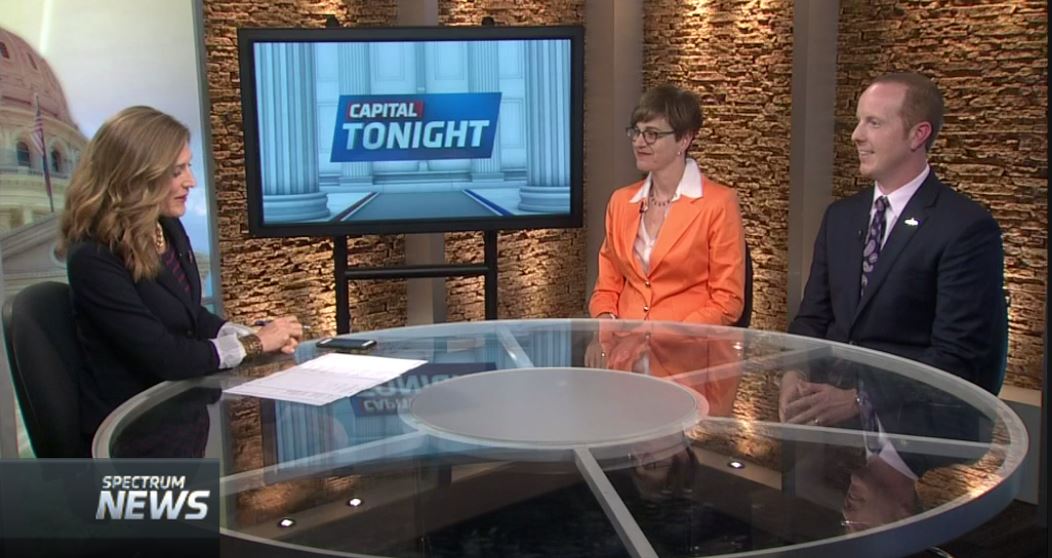You may also find it here: https://www.texaspolicy.com/blog/detail/texas-economic-labor-market-and-fiscal-situation
0 Comments
This commentary was originally featured in RealClear Health on June 14, 2017.
Progressives and conservatives actually agree on health care: A crazy idea? Perhaps not. California, the West Coast bastion of progressivism, is pushing to create a single-payer health care system for its 39 million citizens. State Sens. Toni Atkins and Ricardo Lara have introduced Senate Bill 562 called the Healthy California Act, or HCA, which seeks to “establish a comprehensive universal single-payer health care coverage program and a health care cost control system for the benefit of all residents of the state.” After the California Senate passed the HCA on June 1, the state Assembly and Gov. Jerry Brown are the only barriers from realizing this progressive dream. The HCA would provide all needed medical services from prenatal to nursing homes for all residents of the Golden State regardless of immigration status or financial condition. It would establish a California government insurance monopoly, as it would prohibit competition from private insurance carriers. Among a host of contentious issues about such a bill, one immediately stands out: cost. Clearly, such a cradle-to-grave, soup-to-nuts health care-giveaway to everyone would be very expensive. Even Gov. Brown was skeptical, musing, “Where do you get the extra money?” In California’s proposed FY 2018 budget that begins July 1, the combined general fund and special funds amount is $180 billion. The Senate Committee on Appropriations’ cost estimate of the HCA is roughly double that part of the budget at $400 billion per year, which they note could be offset by $200 billion in existing state, local, and federal funds. It is highly doubtful that California could squeeze any more money out of Washington. Therefore, unless major cost savings are found elsewhere, California’s government would have to rely on taxpayers to fund an additional $200 billion per year. Given that California legislators must balance their budget every year, Californians would bear the full brunt of this cost via dramatic increases in their tax burden. This inevitable higher tax burden would be detrimental to an already over-taxed, excessively regulated economy. These facts detract from any initial enthusiasm for single-payer in California. It may well reduce economic activity with no assurance of improved patient care, which is (or should be) the primary focus of any health care plan. And yet, California should be allowed to try. At a rally in support of the HCA, Sen. Lara said, “Given this picture of increasing costs, health care inefficiencies, and the uncertainty created by Congress, it is critical that California chart our own path.” Texas, on the other hand, could be viewed as a stronghold of conservatism, in many ways the polar opposite of California on the political spectrum. Although 30 percent of 28 million Texans are insured through Medicare or Medicaid, many Texans want to replace federally empowered Obamacare with something else. Considering the ample evidence that patients on Medicaid have poorer outcomes than those without insurance, government-provided insurance often fails to achieve the goal of improved patient care. Texans have reason to be suspicious of California’s path when choosing a health care system. However, neither state, nor any state, can choose. One might quickly conclude that conservative Texans vehemently disagree with progressive Californians about health care. Not necessarily. Conservatives believe first and foremost in states’ rights and that decisions made closer to the people are better for the people. If California wants single payer, and Texas wants free market, and Oregonians want their idea of universal health care, each should be allowed to determine their own health care system. Conservatives would say, “we all have a constitutional right.” Those who strongly oppose the Affordable Care Act but believe in state rights should support another state’s choice to have Obamacare within its state borders. Apparently, conservatives and progressives agree on health care. They concur that Washington should not force federal choices on California, Texas, Oregon, or any of the other 47 member states of our republic. What Senator Lara advised California—let us “chart our own path”—applies with equal force to every other state. https://www.texaspolicy.com/blog/detail/california-and-texas-agree-on-health-care VIDEO: Capital Tonight Interview on Texas budget, education choice, property tax, and more #txlege6/13/2017 Watch my explanation of the Conservative Texas Budget, school finance reform, property tax reform, and more in the @TXCapTonight interview at time 4:30 here: http://www.twcnews.com/tx/austin/capital-tonight/2017/06/13/capital-tonight-june-13--a-day-in-the-life-of-a-cps-caseworker.html
In addition to this fiscal recap of the 85th Legislative Regular Session, the file below provides an overview of the 2018-19 Texas Government Budget while avoiding any smoke and mirrors. Transparency and accountability are essential for the use of taxpayer dollars.
With the regular session of the 85th Legislature behind us, let us consider how effective they were at practicing fiscal responsibility based on the legislative priorities of the 14 member organizations of the Conservative Texas Budget Coalition.
https://www.texaspolicy.com/blog/detail/fiscal-recap-of-the-85th-texas-legislatures-regular-session-special-session-preview |
Vance Ginn, Ph.D.
|
||||||||||||


 RSS Feed
RSS Feed